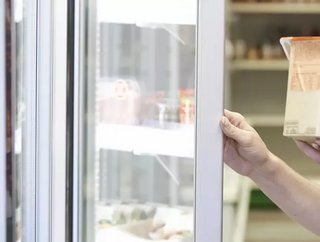Greencore Develops 100% Recyclable Packaging Solution

Many consumers are managing very busy lives. Sometimes it’s nice to stop at a supermarket and pick up a ready-made sandwich. It is estimated that around 600 million pre-packaged sandwiches are consumed in the UK each year. To put this into perspective, it works out to be just over 1,100 every minute.
But these convenience foods come in packaging, which has predominantly consisted of unsustainable packaging. So, do consumers have to refrain from buying a convenient lunch? Perhaps not.
Developing the Next Generation of Packaging
Greencore Group plc is a leading UK manufacturer of convenience foods—including sandwiches—and has announced that it will trial an all-fibre plastic-free recyclable sandwich skillet in partnership with Co-Op and Sainsbury’s.
The packaging solution is believed to be the first of its kind, a result of 18 months of research and development carried out by Greencore in conjunction with ProAmpac. Both companies are confident the new skillet will not compromise the shelf life of its contents, but it will be 100% recyclable with a plastic-free window and the remainder of the packaging made from paper-based materials.
Andy Wright, Head of Sustainability at Greencore, discussed the importance of recycling to the consumer and the environment. ‘Consumers are increasingly aware not just of the importance of their own health but also of the impact their food has on the health of the planet. Developing a fully recyclable sandwich skillet is one of the key ways we can reduce waste and help our customers do their bit to protect the environment’, says Wright. ‘This is not a problem we can solve alone, though. The complexities of the challenges we face require collective action, inside and outside our industry, and Greencore is pleased to have such supportive customers who share our enthusiasm for making great food for all that’s accessible, healthy and sustainable’.
Fulfilling Greencore’s Sustainability Commitment
The development of a fully-recyclable packaging method is part of Greencore’s broader commitment to sustainability—as outlined in the 2020 sustainability report along with further commitments:
- All surplus products will be donated to local communities by 2022.
- A deforestation-free supply chain by 2025.
- All raw materials will be sustainably sourced by 2030.
- Product development will be equally split between animal protein versus plant-rich alternatives by 2030.
Based on the current consumption rate, the rollout of the new sandwich skillet will encourage a significant reduction in non-recyclable waste across the country.
‘We’ve worked closely with Greencore from the start on the development of the compostable sandwich packaging and implemented the first trial of its use in our pop-up store at Glastonbury Festival in 2019 with great success’, says Breige Donaghy, Director of Delicious Food at Co-Op. ‘The trial aligns with Co-op’s ambition to reduce the use of virgin plastic and how we’ve also worked to ensure that all of our own-brand packaging is now fully recyclable. We’re looking forward to seeing the new packaging on shelves this autumn and are confident it will resonate with our members and customers’.
Claire Hughes, Director of Product, Packaging and Innovation at Sainsbury’s, says, ‘Our customers want tasty, great quality food that they can enjoy on the go, which is also better for the planet. We are committed to making recycling easier for our customers while reducing our use of plastic packaging by 50% by 2025, and working collaboratively with our suppliers is key to achieving our targets and driving change. We are pleased to be trialling this innovative new sandwich packaging with Greencore and helping our customers reduce plastic when they shop with us’.






